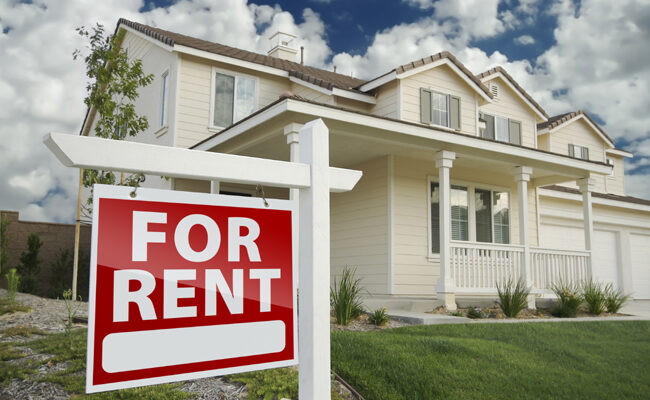
If you want to start your career in the real estate industry, then converting your home into a rental property may be an excellent idea. This is an especially ideal option if you’re relocating to a new house and you don’t want to let go of your older property. It’s also a worthwhile approach to consider if you’re looking for a way to build your wealth and prepare for a financially secure future. Whatever your reasons are, the idea of turning your home into a rental property can be a promising opportunity for additional income.
However, just like other real estate investments, this process can be quite overwhelming. There are many factors to consider to become successful and bring money to your pocket instead of experiencing financial losses.
To get started, DeSantis Property Management brings you the six tips for transforming your home into a rental property:
1. Obtain The Necessary Permits
If you want to streamline the conversion process, secure the required permits as soon you finalize your decision. Typically, most cities require a permit before one can turn a home into a rental property. Since the guidelines and requirements vary from one place to another, be sure to check with the regulating agency about the specific documents that you should prepare.
Once you apply for the local government permits, an inspector will visit your home and conduct an inspection on various things such as electrical hazards, the heating system, and other key features of your home. After the inspection, the inspector will submit their report and notify you of the modifications or repairs that need to be done so the property will be compliant with the law.
2. Plan Your Property Management Efforts

As you focus on making your property compliant with the local governments’ rules and regulations, it’s also best to plan your property management efforts as early as possible. Doing so can save you a lot of stress once the conversion is complete and your property is ready to accept tenants. This is also especially true if you’re moving away from your old home.
Thus, if you believe your newly-converted rental property will reach its rental goals, hiring a property management company like Teton Valley Property Management will be a good idea. A reliable team of professionals, including a property manager, can help you do the following:
- Handle all the necessary paperwork
- Draft lease agreements
- Ensure efficient rent collection on a monthly basis
- Help you with any legal issues that may arise along the way
- Take care of the regular repairs and maintenance of the rental property
- Provide services associated with evictions
As you can see, there are many ways working with a property manager can be beneficial in managing a rental property. Therefore, if you’ve decided to turn your home into a rental property, be sure to consider professional property management for your real estate investment. After doing all the necessary work, it’s time to get a Real Estate Chatbot for a speedy process.
3. Find A New Insurance Policy
Generally, your existing homeowner’s insurance policy may no longer be able to offer you enough coverage once you become a landlord. So, if you want to convert your home into a rental property, be sure to find a new insurance policy that’ll adequately cover you and your property in case of damage or loss.
In doing so, talk to your insurance agent and shop around for new insurance policies. Look for an insurance policy that provides comprehensive coverage against loss or damage to your property and liability coverage in case a renter gets hurt while staying in your rental home.
Lastly, to get the most out of your protection, be sure to switch your insurance before you put the property up for lease. That way, you can avoid any problems once you start renting out your home.
4. Familiarize Yourself With The Tax Changes
Transforming your home into a rental property comes with a lot of tax changes. Because of this, it’s highly advisable to speak with an accountant to prepare your property for the transition. These preparations can include changes in your tax obligations. Typically, the rental income you receive will be taxable, which is why you should be familiar with these changes when you rent out your home to tenants. This means that your rental property may qualify for the following tax deductions:
- Utilities, in case you’re paying them
- Property taxes
- Mortgage interests
- Homeowner’s association fees
- Landlord insurance
- Repairs and renovations
- To simplify and understand these changes, a helpful tool you can use is the guides on MTD for landlords.
5. Get Your Property Ready
Now that you’re done with the paperwork and other legal concerns, it’s time to prepare your property and make it tenant-friendly. Make sure it’s fully functional and within the standards required by your local government. The following are some things to do when preparing your rental property:
- Be sure the place is clean and tidy.
- Inspect your home’s electrical components and make sure they all work properly.
- Check the roof, faucets, and other plumbing fixtures to fix any leaks.
- Be sure the HVAC (heating, ventilation, and air conditioning) system is working efficiently.
- Ensure that all the doors and windows are safe and secure.
- Inspect if the structures are safe against natural calamities.
By taking care of everything on this list, you can make your rental property more livable for your tenants and increase its rental value with some budget-friendly and practical ways. If you see some serious problems, be sure to repair them right away to avoid wasting unnecessary money. While repairs can be costly, tackling them as early as possible can save you money on long-term expenses.
6. Set Your Rent And Find Tenants
Once your property is ready, the next thing you should do is to set your rent and find tenants. Perform the calculations and determine the amount of rent you need to charge. In doing so, be sure the rental income is sufficient to cover all the expenses—including the taxes and mortgage payments, if there are any—while making some profit on the side.
Once you’ve set the figure for your rent, it’s time to look for tenants. You can do this by conducting a thorough screening process to make sure they won’t cause trouble to your property. So, when considering a tenant, don’t hesitate to check their background. By doing this, you can have peace of mind knowing your tenants won’t become a headache.
Final Thoughts
A rental property can be an excellent way of making passive income and achieving financial success. However, becoming a landlord can be an intimidating responsibility. With all the things that should be taken care of, you may not know where and how to start.
Luckily, by following the tips mentioned above, you can begin transforming your home into a rental property with ease. The more you take these things into consideration, the easier you can make the transition from a resident to a landlord.
Leave a Reply